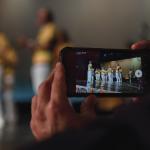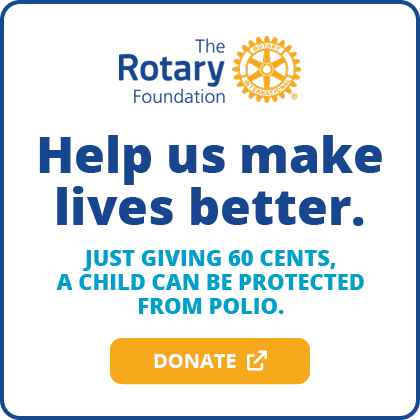Safari returns to his roots to support girls’ education
All grown up and now a proud husband and father, infant burns victim Safari Kimanzi is giving back to his home community of Kasaala by helping young girls gain a secondary education.
By Jack Campbell
RDU Journalism Intern
There is a well-recognised ripple effect when young female students gain secondary education. They tend to have children later in life, they have fewer children, and these children will be healthier and are more likely to gain an education themselves.
With this in mind, the Rotary Club of Maitland Sunrise, NSW, has been at the forefront of the Safari’s Education Aid for Kasaala (SEAK) project. The initiative, started by club member Alan Morrison and Safari Kimanzi, provides much needed funding to the remote community of Kasaala, Kenya, to allow young girls from extremely poor socio-economic backgrounds to attend secondary school.
Many will recognise Safari as the brave six-year-old who was badly burned in his home village of Kasaala and arrived in Australia in 2001 to receive extensive medical treatment. Safari’s journey was televised on Nine Network’s ‘RPA’.
As a young adult, Safari returned to Australia and lived with Alan and his partner Sue for eight years, initially on a secondary school scholarship and then completing an apprenticeship as a diesel mechanic. There, he was introduced to the Rotary Club of Maitland Sunrise, attending club meetings and supporting club activities.
But Safari never forgot where he came from and was very much still in touch with his Kenyan heritage. In Kasaala, education was not readily available, especially for young girls.
“The Rotary Club of Maitland Sunrise, NSW, has been at the forefront of the Safari’s Education Aid for Kasaala (SEAK) project. The initiative provides much needed funding to the remote community of Kasaala, Kenya, to allow young girls from extremely poor socio-economic backgrounds to attend secondary school.”
Determined to help, Safari, with the backing of the Rotary Club of Maitland Sunrise, began selling stationery and engaged in fundraisers to support his people. From these humble beginnings, SEAK was registered with Rotary Australia World Community Service (RAWCS) in 2016, making it a significant international project for the club.
Individual donors have provided valuable financial support, enabling 20 girls to attend secondary school. The average cost of the SEAK initiative is around $6,000 per year and the club receives regular copies of exam results and school reports to track progress.
Safari is very aware of the value of education and is proud of the project. He returned to Kenya two years ago and has since married his partner Mwende and they have a son named Leo.
“My life in general is revolving around my family and helping my community where I can,” Safari said.
There are plans to further expand the SEAK initiative to cover tertiary education, meaning more opportunities for students in these communities.
The SEAK team is working alongside Kasaala Secondary School to identify students who are committed to their studies and have potential to further their education with tertiary study.
“Depending on funding, this would enable us to provide for tertiary education at college or university for the students,” Alan said.
“We would love to get our graduates into further learning to enable them to contribute back to society to an even greater degree.”
To support the SEAK initiative, tax-deductible donations can be made via RAWCS. Visit donations.rawcs.com.au/84-2016-17
Related news
Dubbo West Community Carols by Candlelight
Celebrate the festive season at Dubbo’s Carols by Candlelight, promising fun, music and the big man himself.
Sanitation solutions in Sumba
By PDG John KevanRotary Club of Mandurah Districts, WA In East Sumba, where the financial capacity to support water and health requirements for villages in remote areas is severely limited, Fair Future Foundation has been successfully providing materials and training to enable villagers to build their water and sanitation facilities for more than 15 years. […]
Queanbeyan delivers U-Turn the Wheel pilot program
Throughout May, the Rotary Club of Queanbeyan, NSW, held the 2024 pilot program of U-Turn the Wheel (UTTW) at three local high schools in Queanbeyan – The Anglican School at Googong, Karabar High School, and Queanbeyan High School. Overall, approximately 125 students took part in the one-day program. Feedback from students and staff was positive, […]
Join our newsletter for the latest updates
"*" indicates required fields


